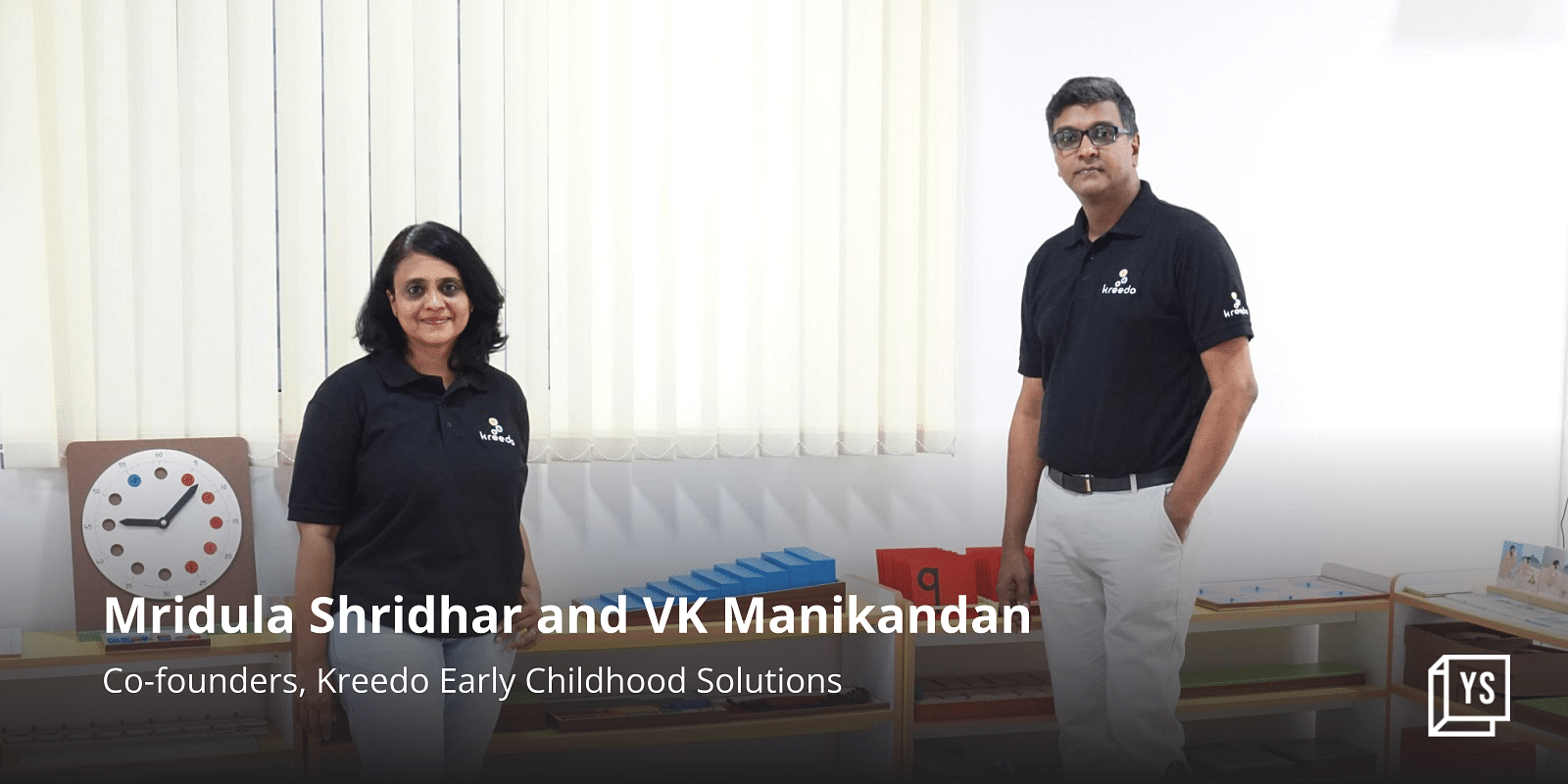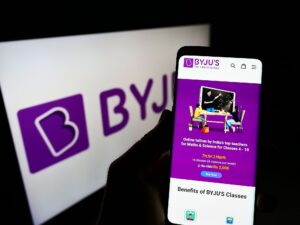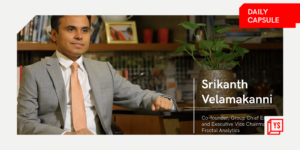In the last two years, we have had endless conversations surrounding the edtech boom in India. Amidst the COVID-19 pandemic, several companies also attained the coveted “unicorn” status.
Perhaps, more conversation could have been had about the nuances of K-12 education and how the pandemic affected children of different age groups.
According to UNICEF, globally, school children have lost an estimated 1.8 trillion hours—and counting—of in-person learning since COVID-19 started, hampering their education.
Moreover, it said, young children’s experience with extended school closures has significant long-term effects, with preschoolers in middle-income countries bearing the greatest risk of negative impact.
Founded in 2012 by the husband-wife duo and IIM Calcutta alumni—Mridula Shridhar and VK Manikandan— Early Childhood Solutions wants to change the early learning processes in budget private schools and preschools through its 6T learning framework.
In July 2022, the Bengaluru-based edtech startup raised $2.3 million in a pre-Series A round led by investors, including Switzerland-based UBS Optimus Foundation, Spectrum Impact, Gray Matters Capital, 1Crowd, Innospark Ventures, IIM-CAN, and The Chennai Angels.
Pranay Adhvaryu, Head of Investments at Gray Matters Capital, and an early investor in Kreedo, says,
“COVID-19 has adversely impacted the already distressed early education sector, and now, Kreedo sees tremendous traction as it addresses a massive learning gap that schools need help to fill.”
How it works
With play-based learning at its core, Kreedo’s 6T pedagogy includes Toys, Technology, Theory (books), Teacher Training, Timetable, and Teamwork (peer learning).
“At a partner school, every form of learning that goes out is Kreedo’s responsibility. We realised that it’s not enough to do one hour of play learning, saying let everything else continue the way it is. The whole ecosystem has to change,” explains Mridula Shridhar, Co-founder of Kreedo.
Kreedo either partners with existing preschools or helps start one. In existing preschools, it sets up The Kreedo Lab, equipped with 150 teaching materials.
While the schools have to bear a one-time set-up cost of about Rs 2-2.5 lakh for the lab, the startup charges nearly Rs 1,800 per child per year—paid by the parents—for all other products and services in a bundle.
Kreedo provides schools with toys and books and trains teachers according to the curriculum developed by the startup at these schools.
Moreover, it provides a Kreedo Curriculum app—available on Google Play Store and App Store—which includes timetables and lesson plans for each month.
The app, which has over 5,000 downloads, also helps teachers conduct assessments and provides them with skill metrics to map a student’s learning.
At present, the Kreedo Curriculum app is available for teachers. It is also developing an app for parents to be launched in December 2022.
“Everything—from counting to multiplication—has an activity, and there are materials associated with that learning. Once the lab is set up, we focus on teacher training as they are trained on other pedagogy. While they have a sense of working with a child, they have to be trained on the curriculum,” she explains.
Until 2017, the startup partnered with only preschools. Soon after, it decided to increase its scope by partnering with budget private schools—which charge less than Rs 30,000 per year to students from low-income families.
“The value proposition for a budget private school is very simple. We tell them we will improve their learning outcome as parents want. In this scenario, parents are mostly uneducated, and their children are first-generation learners, and school is the only place where learning happens for them,” says Manikandan, Co-founder of Kreedo.
At present, Kreedo has partnered with over 1,500 preschools and nearly 400 budget private schools in Bengaluru, Pune, Hyderabad, Sangli, and Kolhapur.
Kreedo has about 150 employees in sales, academic support, product development, content, training, and admin teams. It has a further 150 people working in manufacturing and logistics teams.
It faces competition from Next Education India, OckyPocky, Kutuki, Kiddopia, and SuperCubs, among others.
Pandemic low
“Education has never seen a recession in the 25 years we have been in business. It has always been growing. There are more children in India than there are anywhere else,” says Mridula.
Kreedo Early Childhood Solutions clocked a revenue of Rs 19.6 crore in FY20, which fell 57.6% to Rs 8.3 crore in FY21 as preschools were severely affected amid the pandemic.
“Schools are a seasonal business. From July to February, you are planning for the next year. And, from February to July, the entire year’s sale happens. In February 2020, we invested everything we had into the business, saying it will be a big growth year for budget private schools. The season would have begun in March, exactly when COVID-19 put paid to everything,” recalls Mridula.
In June 2020, the startup experienced a 99.2% drop—from 25,000 children to 200 children.
“These many children had disappeared from the schools. That’s how bad the pandemic hit the affordable and preschool spaces. Both the segments were shattered. By June 10, 2020, we decided to salvage the situation,” she adds.
In August 2020, Kreedo developed home learning toy kits called “Practivity”, which it delivered to the children’s homes as Zoom classes would not work for students in budget private schools.
Post Practivity’s launch, the startup saw more students returning to school, and by September 2020, the number slowly rose to 4,000.
Since then, the startup is seeing an uptake. In FY22, Kreedo’s revenue increased by 63% to Rs 13.5 crore. In FY23, it aims to clock Rs 35 crore in revenue.
Road ahead
As a part of its Mission 2025, Kreedo aims to reach one million children annually.
In the current academic year, the startup aims to reach 800 private budget schools and targets partnerships with 7,000 schools by the end of 2025. The startup aims to launch in Chennai, Tamil Nadu, soon.
Mridula is confident when she says, “The way the demand for in-school learning has come back this year, reaching one million children does not look like a difficult path as of now.”




![Read more about the article [Funding alert] goEgoNetwork raises $2M in seed round](https://blog.digitalsevaa.com/wp-content/uploads/2021/06/VCfunding-1605087354569-300x150.jpg)





